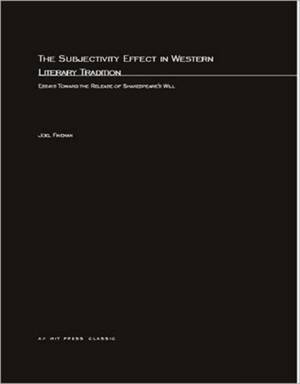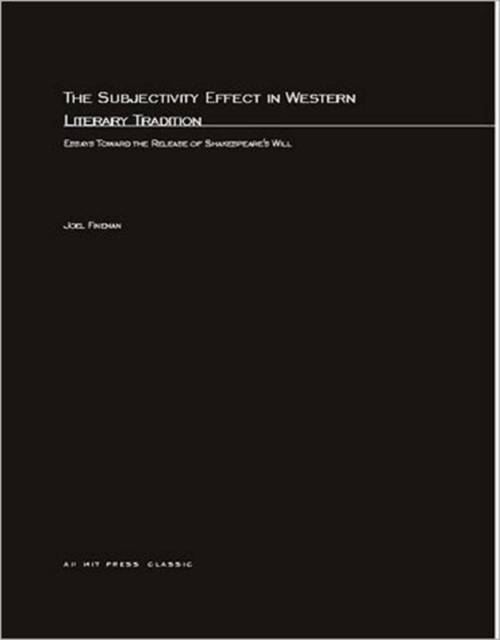
- Afhalen na 1 uur in een winkel met voorraad
- Gratis thuislevering in België vanaf € 30
- Ruim aanbod met 7 miljoen producten
- Afhalen na 1 uur in een winkel met voorraad
- Gratis thuislevering in België vanaf € 30
- Ruim aanbod met 7 miljoen producten
The Subjectivity Effect in Western Literary Tradition
Essays toward the Release of Shakespeare's Will
Joel FinemanOmschrijving
Joel Fineman was considered one of the most brilliant literary critics of his generation, gifted in doing what the Russian formalists called making strange. His essays are among the strongest demonstrations of how structures--whether linguistic, visual, or architectural--generate large and elaborate systems of meaning. Using examples drawn from literature--Chaucer, Shakespeare, Oscar Wilde--Fineman creates parables of how language has come to constitute the modern subject (ourselves) as a set of its effects. Combining formidable learning with theoretical sophistication that is at once philosophical, linguistic, and psychoanalytical, Fineman draws from the most familiar work verbal details that lead to startling new interpretations, challenging Freud or making original applications of Lacan. The repercussion of his writings on theory and on nonliterary discourse is considerable, particularly among critics engaged in showing how artistic practice can be understood, structurally, to signify.
Essays
The Structure of Allegorical Desire - The Significance of Literature: The Importance of Being Earnest - The Pas de Calais: Freud, the Transference, and the Sense of Woman's Humor - The History of the Anecdote: Fiction and Fiction - Shakespeare's Perjur'd Eye - The Turn of the Shrew - The Sound of 0 in Othello: The Real of the Tragedy of Desire - Shakespeare's Will: The Temporality of Rape - Shakespeare's Ear
Specificaties
Betrokkenen
- Auteur(s):
- Uitgeverij:
Inhoud
- Aantal bladzijden:
- 256
- Taal:
- Engels
- Reeks:
Eigenschappen
- Productcode (EAN):
- 9780262561792
- Verschijningsdatum:
- 1/04/1991
- Uitvoering:
- Paperback
- Formaat:
- Trade paperback (VS)
- Afmetingen:
- 215 mm x 279 mm
- Gewicht:
- 485 g

Alleen bij Standaard Boekhandel
Beoordelingen
We publiceren alleen reviews die voldoen aan de voorwaarden voor reviews. Bekijk onze voorwaarden voor reviews.











